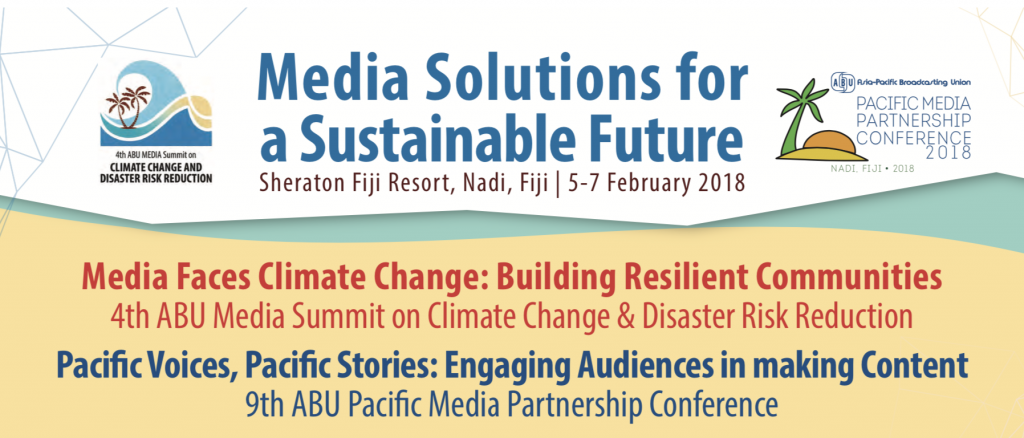• We request that the ABU develop and implement, with donor funding from the UN, multilateral, bilateral, and national government sources, a region-wide training project to enable broadcasters in the Pacific to gain greater knowledge of climate change, disaster risk reduction and other relevant issues. This information exchange will better enable senior media managers, producers, and journalists to address relevant matters in their daily working environment;
• We will review and implement support and training for media employees, especially women, to promote a positive work environment and enhance safety provisions and career development; and
• We will encourage a ‘whole of society’ approach that ensures that governments, civil society groups, research institutions, international agencies and other parties develop partnerships with broadcasting organisations to ensure that professional, accurate and cogent messages on a range of issues are available in a timely manner for public information, education, action and the broader global conversation.
We invite the host of this joint Media Summit and Pacific Media Partnership Conference and the members of the ABU to place the Fiji Action Plan before relevant United Nations bodies, conferences and donor agencies, thus ensuring that the voices of the people of the island nations of the Pacific are heard by those international institutions. We especially ask that the proposal for a regional, high-level training project be funded and implemented at the earliest opportunity.
To conclude, we invite all broadcasters, stakeholders and fellow interested parties to gather in 2019 for the 5th ABU Media Summit on Climate Change and Disaster Risk Reduction, and in Samoa for the 10th ABU Pacific Media Partnership Conference.
Agreed by parties to this joint Media Summit and Pacific Media Partnership Conference. Nadi, Fiji.
7 February, 2018
